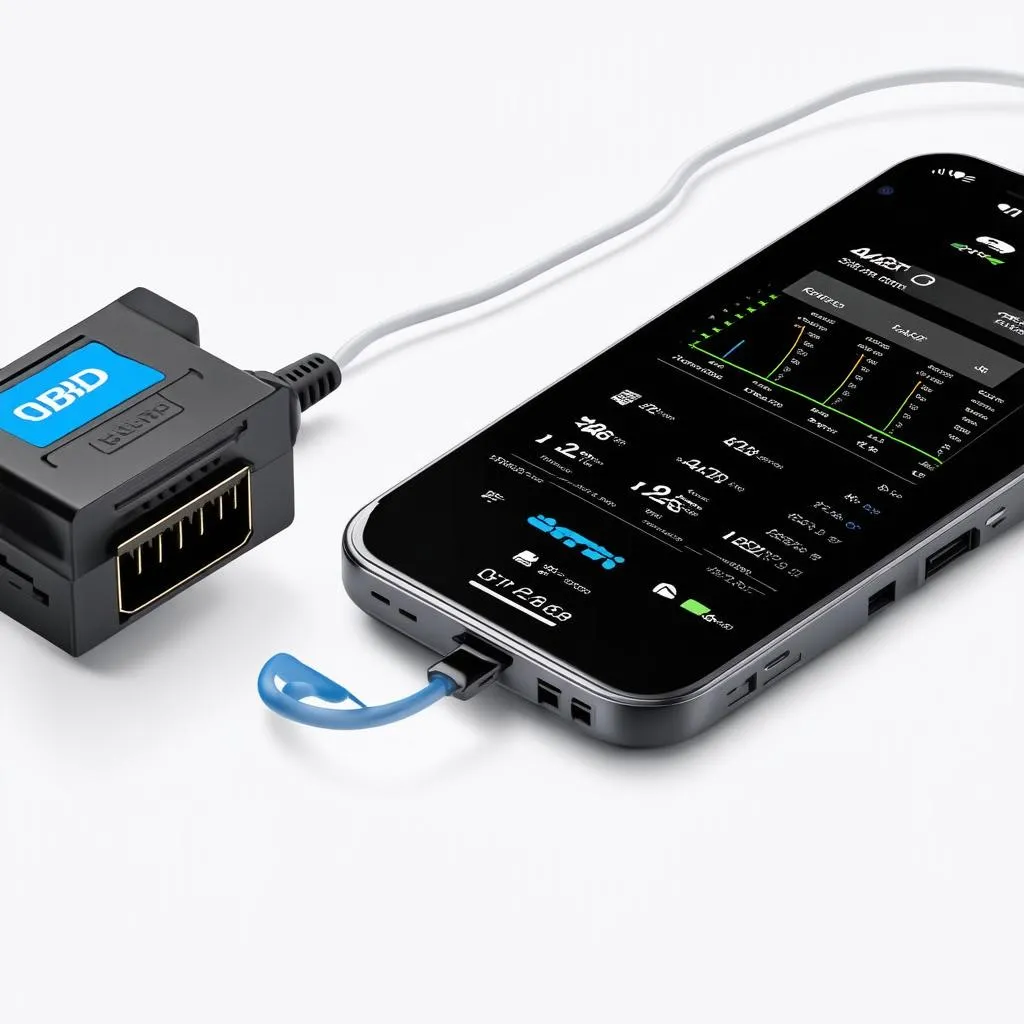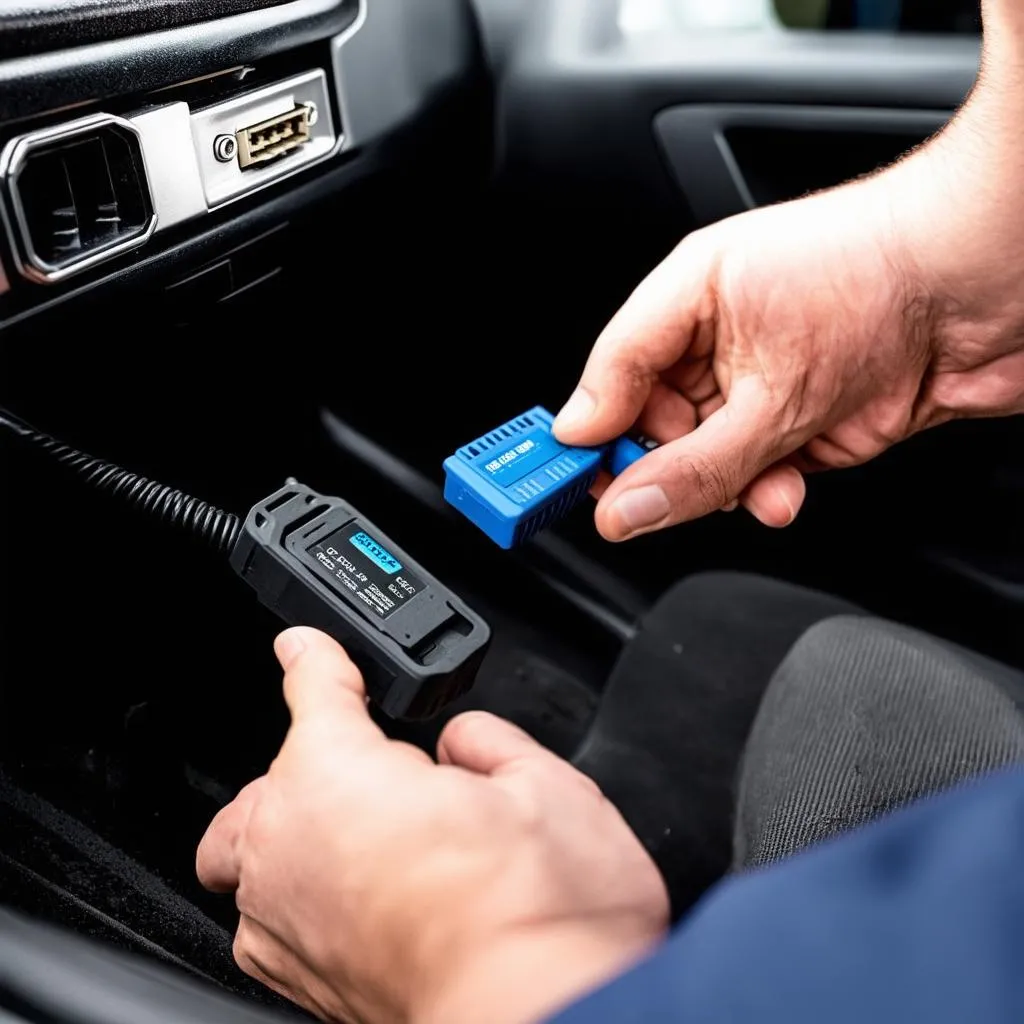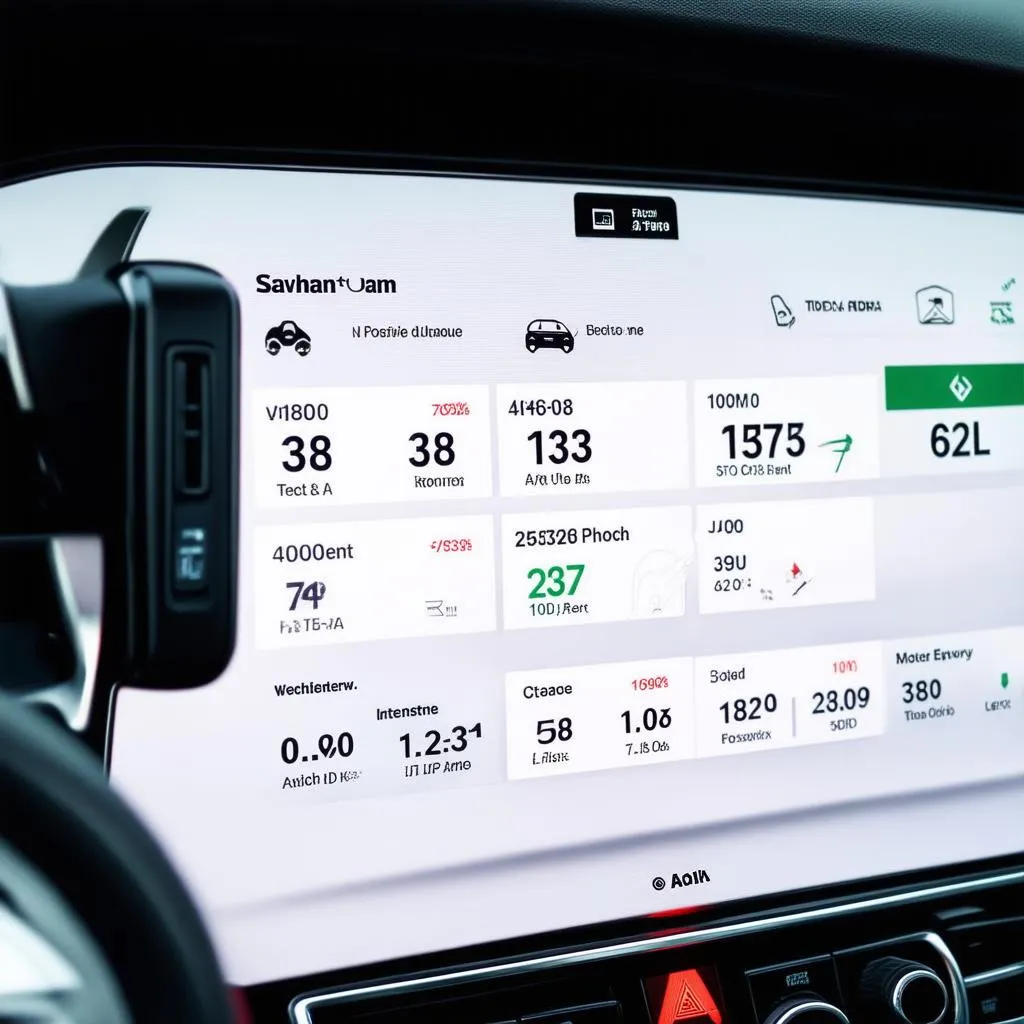Have you ever felt like you were talking to a brick wall when your car’s engine light flashes? Or worse, have you ever been stranded on the side of the road, clueless about what’s wrong with your beloved vehicle? These are all too common experiences for car owners, but with the right tools, you can gain a newfound sense of control over your car’s health and even save money on repairs.
Enter the world of connected car OBD devices – the modern-day wizards of vehicle diagnostics. These small, portable gadgets can transform your smartphone into a window into your car’s inner workings, revealing valuable data, potential issues, and even enabling you to reset error codes before they escalate into major problems.
Why a Connected Car OBD is Your New Best Friend
Think of it this way, a connected car OBD is like having a personal mechanic in your pocket! But unlike a mechanic, who charges a hefty fee for each visit, these devices can provide you with ongoing insight into your car’s health at a fraction of the cost. Let’s explore the many benefits of investing in a connected car OBD:
1. Proactive Vehicle Monitoring and Diagnosis:
Imagine you’re driving down a scenic highway, and your car’s engine light suddenly comes on. Instead of panicking and pulling over, you can quickly connect your OBD device to your car’s diagnostic port, pull out your phone, and instantly see what the problem is. This saves you time, money, and the stress of wondering what’s wrong.
2. Real-Time Performance Data:
Want to know how your car is performing in real-time? Connected OBD devices can display a variety of information, including engine speed, fuel consumption, acceleration, and even driving habits. This data can help you improve your fuel efficiency, optimize your driving style, and ensure your car is running smoothly.
3. Early Detection of Issues:
Many car problems start with subtle signs that may go unnoticed until it’s too late. A connected OBD device can proactively alert you to potential issues before they become major breakdowns. This early detection can save you from costly repairs and ensure the safety and longevity of your vehicle.
4. Enhanced Safety and Security:
Some connected OBD devices offer additional safety and security features, such as real-time location tracking, geofencing (setting boundaries for your car), and remote diagnostics. These features can provide peace of mind and potentially even help recover your vehicle if stolen.
How to Choose the Best Connected Car OBD for You
So, you’re convinced that a connected car OBD is a must-have for every car owner. But with so many options on the market, how do you choose the right one? Here are some factors to consider:
1. Compatibility:
Make sure the OBD device you choose is compatible with your car’s model and year. Some devices are designed for specific vehicle brands or models, while others are universal. Check the manufacturer’s website or product description for compatibility information.
2. Features and Functionality:
Different OBD devices offer varying features and functionalities. Consider what features are most important to you, such as real-time data monitoring, error code reading and resetting, vehicle diagnostics, and additional safety features.
3. App Integration:
The app that connects your OBD device to your smartphone is crucial. Look for an app with a user-friendly interface, informative dashboards, and easy-to-understand data visualizations.
4. Price:
Connected car OBD devices range in price from under $20 to over $100. Consider your budget and the features you need before making a purchase.
Frequently Asked Questions about Connected Car OBDs:
Q: Are connected car OBDs safe?
A: Yes, connected car OBDs are generally safe. However, it’s crucial to choose a reputable brand and ensure the device is properly installed and connected to your vehicle. Additionally, be mindful of data security and privacy concerns.
Q: Can I use a connected car OBD to tune my car’s performance?
A: While some OBD devices can offer basic performance tuning options, it’s generally not recommended to use them for significant engine modifications. Consult a qualified mechanic for any performance tuning needs.
Q: What about the legality of using connected car OBDs?
A: Using a connected car OBD device is generally legal, as long as it’s not used to modify your car’s emissions system. However, it’s always a good idea to check your local laws and regulations to ensure compliance.
Recommendations for the Best Connected Car OBD Devices:
Here are a few highly-rated connected car OBD devices based on reviews and expert opinions:
1.  Best Connected Car OBD Device
Best Connected Car OBD Device
2.  Affordable Connected Car OBD
Affordable Connected Car OBD
3.  Advanced Connected Car OBD
Advanced Connected Car OBD
The Bottom Line:
Investing in a connected car OBD device is a smart decision for any car owner. It can empower you with valuable information, help you prevent costly repairs, and ensure your car runs smoothly for years to come.
Want to take control of your car’s health and unlock its full potential? Reach out to us today for expert assistance with installing and using your new connected car OBD device. We’re here to answer your questions and help you navigate the world of automotive diagnostics.
Remember, a little preventative care goes a long way – especially when it comes to your car!
Connect with us on WhatsApp: +84767531508 for immediate support.
Ready to explore more helpful resources? Check out these related articles on our website:
- How to Troubleshoot Ford Fiesta OBD Code P2867
- Decoding BMW E39 2000 OBD Codes
- ECUsim 2000 OBD-II ECU Simulator: Your Gateway to Diagnostics
- Understanding BMW OBD Codes for Steering Wheel Angle
- HTTP Repnet Greenheck.com Deliveries OBD: A Comprehensive Guide
Share your thoughts and experiences with connected car OBD devices in the comments below!
